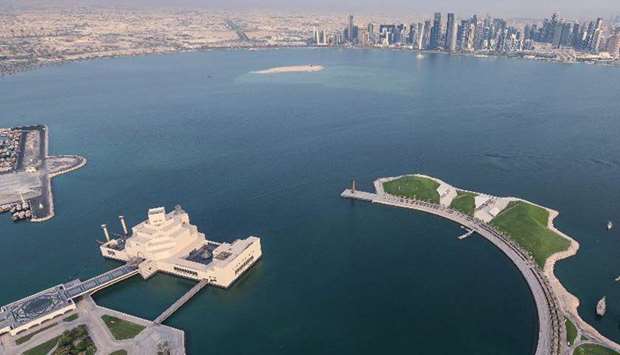The Cabinet has approved a draft law on establishing the National Tourism Council, which is expected to provide a further boost to Qatar’s tourism sector through a multi-pronged approach.
The regular weekly meeting of the Cabinet also gave its nod to a draft law on tourism regulation in the country, the official Qatar News Agency (QNA) reported.
The National Tourism Council is to be constituted under the chairmanship of HE the Prime Minister, the draft law stipulates. The council will seek to “achieve the best conditions for the implementation of the national strategy for tourism and its subsidiary programmes, in order to promote comprehensive development plans for the tourism sector and organise and promote them internally and externally”, QNA explained, noting that the council will aim to “improve the tourism experience in the country and show the civilisational, cultural, artistic and touristic features of the State”.
Under the draft law, the National Tourism Council shall exercise all necessary powers and terms of reference to achieve its objectives, including the “adoption and review of the national strategy for tourism, preparation for and follow-up on the implementation of the projects and programmes that are part of the strategy, as well as the approval of the State's development, economic and infrastructure plans and programmes that are related to the strategy and following up on its implementation in accordance with Qatar National Vision 2030”.
The Council will also adopt the general policy of the State regarding tourism and supervise all aspects of tourist activity.
In September this year, it was announced that the National Tourism Council would soon replace Qatar Tourism Authority (QTA) as part of Qatar’s efforts to restructure the sector.
The council will guide the overall development of the sector, monitor tourism sector performance and ensure cross-sector collaboration and focus, QTA had said.
Meanwhile, the draft law on tourism regulation defines a tourist area as “any area in the territory of the country that has attractive, archaeological, historical or natural features, and its co-ordinates shall be determined by a decision of the Council of Ministers”, according to QNA.
Besides, any area issued as a tourist area by a decision of the Council of Ministers, based on a proposal by the chairman of the Board of Directors of the National Tourism Council, is also defined as a tourist area.
The draft law includes provisions concerning the licensing and classification of hotel and tourist establishments, as well as tourism activities, festivals, tourism events and their organising offices, as well as the promotion of festivals and tourist events.
After HE the Prime Minister Sheikh Abdullah bin Nasser bin Khalifa al-Thani chaired the Cabinet meeting at the Emiri Diwan yesterday, HE the Deputy Prime Minister and Minister of State for Cabinet Affairs Ahmed bin Abdullah bin Zaid al-Mahmoud said the Cabinet yesterday also approved a draft law on organising business events.
The draft legislation defines business events as exhibitions or conferences. “It also defines an exhibition as an event that is held to display samples, goods, machines, models or services related to the commercial, industrial, banking, agricultural, tourism, real estate, professional, artistic, sports or other sectors, and whether they are national or foreign products for the purpose of advertising, marketing or promoting them - the main purpose of which is to attract tourists from abroad to participate or visit,” QNA said, adding that these do not include any event whose primary purpose is the direct sale of goods to the public.
Also, the draft law defines a conference as each gathering in which specialists in a particular field are called to participate under a specific title or topic to provide research and working papers dealing with a particular issue. The main purpose of this is to attract tourists from abroad to participate or visit.
Provisions concerning the licensing of business events and their organising offices and locations, as well as the classification of such offices, are also included in the draft law.

